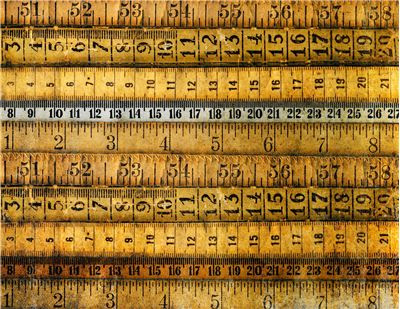The Problem of Measuring 'Education'
One of the foundational industrial age belief is 'what gets measured, gets done'. This is indeed at the heart of scientific management and all the business models that we so love. The progresses in Information Technology came out of, primarily, our quest for measurements, so much so that we got used to the shorthand - 'Information Age' - when measuring and decision-making based on such measurements are the key organising principle of the whole society.
Therefore, it is not surprising that the conversations in Education also revolves around measurement. Much of educational research is about what can be measured and how, driven primarily, but not exclusively, by the politics of public funding, to establish the 'worth' of one thing or another to be eligible for taxpayers' money. The private sector engagement in Education, either through large scale philanthropic engagements by people like Bill Gates or Mark Zuckerberg, or in the commercial ventures backed by Private Equity, has put measurement at the heart of education. This is not just about testing at every level, but a whole array of things, ranging from international benchmarking (PISA, for example), measurements of behaviour, teacher effectiveness, learner engagement, to the more complex and intrusive measurements enabled by the Internet of Things and Data Analytics. Much of Education Technology work is about tracking and measuring - and the race is on to find new areas and ways of measuring.
The point of this vast enterprise is that measurement would improve education. This is indeed consistent with the widely held assumptions about measurement being the foundation of efficiency, and efficiency being the key to effectiveness. Many educators, however, strongly object to the intrusive and impersonal nature of this enterprise - for them, education is a deeply personal engagement, often full of emergent possibilities and serendipity, something that the quest for efficiency severely limits or even damages. The measuring obsessions of the State often makes a teacher spend more time writing reports than interacting with pupils, while the technologies that claim to minimise report-writing times come with its own agenda and political objective that seeks to transform the process of education and grab a greater share of money for itself. However, the teachers who object to such intrusion are indeed on the losing side of the argument, as their stance contradicts how the society is organised, their evidence is often anecdotal and their case, made against technology, appears doomed.
There is something crazy in the quest of personal learning through technologies of faceless engagement, but emotional arguments do not suffice here. Rather, a critical engagement with what's being measured and how it's done is needed. The real effect of measurement culture is not effectiveness, but ineffectiveness: Under the claim of measurement being the first step of getting things done, bureaucrats and analysts demand measurement of everything, and since that can't be done, or are too difficult or expensive to do, end up measuring what's easy and possible, an arrangement that changes the nature of the activity in turn. For example, since the personal engagement of the teachers is too difficult to measure (some brilliant minds wanted to put cameras in the classroom etc), they would settle for proxies such as time spent, which is indeed not the same thing. And, indeed, imposition of such measurement changes the nature of things - time spent becomes more important than engagement!
Measurement also creates another challenge, which is only become apparent. It creates rules and a system, and, incentives to play the system. And, people do play the system - any system of measurement invariably brings with it people who are good at playing the game! Imposition of measurement, therefore, changes a field, and attracts people who are good at playing the system. And, because these individuals get promoted and eventually leads the institutions, the essentials of the activity becomes synonymous with what gets measured - often at the detriment of the objectives of doing the activity. So, students passing or getting good grades become the point of education, and the incentives and leadership get so aligned on such objectives that any other possible goals of education get forgotten. And, indeed, this invariably follows break-down, shake up and confusion (like Michael Gove's attempts to shake up school leaving examination grades in England, which led to widespread confusion). What gets measured eventually gets undone!
However, the case against measurement - that it puts the cart before the horse - is poorly done, usually in emotive terms and invoking tradition and timelessness of education. The reason for this, I suspect, is a conflict of interest: The experts that we have today have mostly played the game and why would anyone rock the boat that got them there? The nonsense of measurement, which not only sustains a vast government bureaucracy, but an entire ecosystem of consultants, analysts, managers and even educational researchers - everyone in the huge industry of policy and think-tanking - privileges process and obscures the purpose of education, creating a meaningless web of activity destined to self-immolation! The populist challenge that we are living through right now may be a result of this rage, the inevitable end of the game which is being played, sustained by the meaninglessness that it cultivated for so long! Questioning the experts from time to time may make us feel lost, but such chaos may have the unintended consequence of raising some tough questions about their motives and methods after all.


Comments